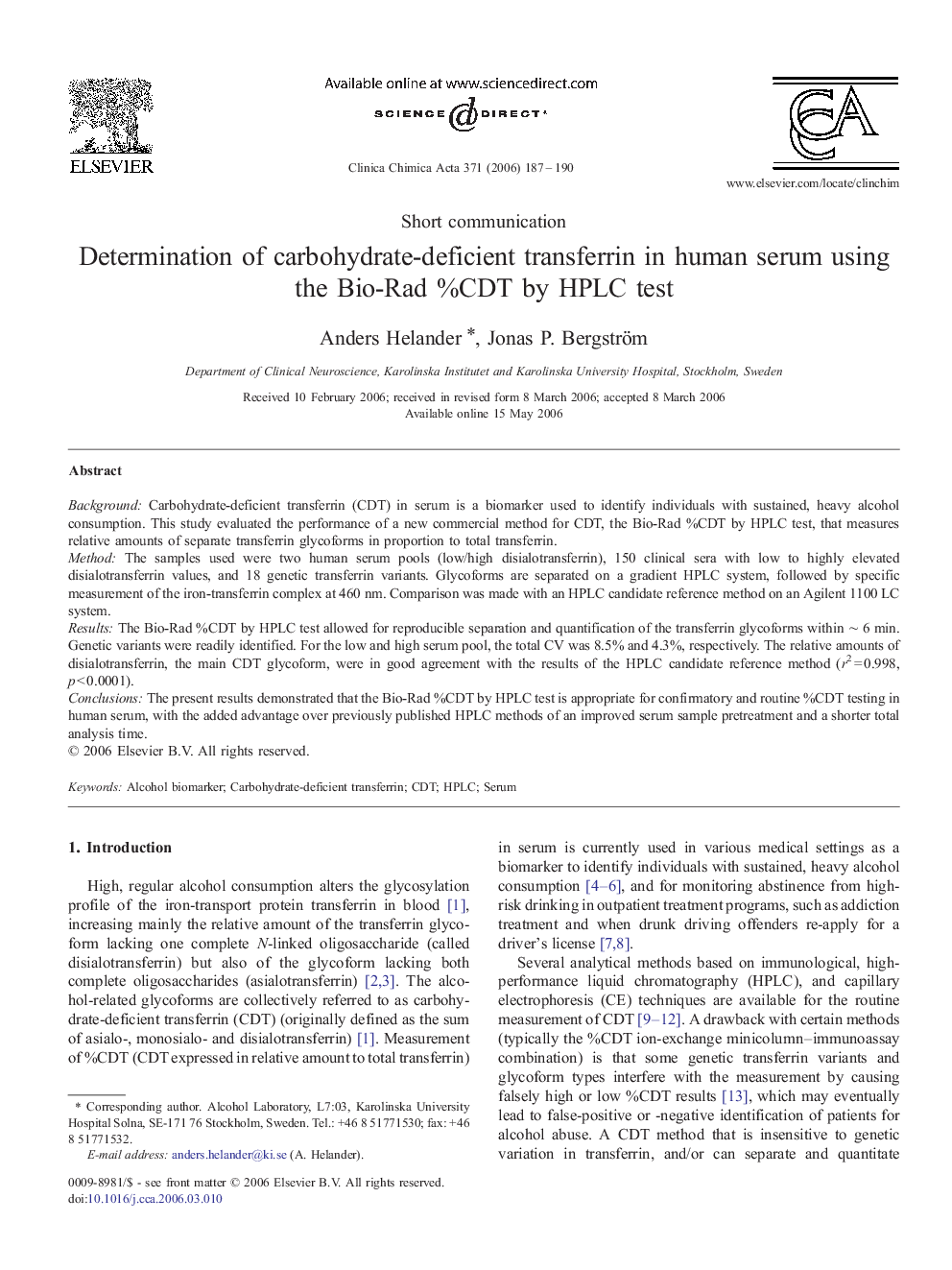| Article ID | Journal | Published Year | Pages | File Type |
|---|---|---|---|---|
| 1967833 | Clinica Chimica Acta | 2006 | 4 Pages |
BackgroundCarbohydrate-deficient transferrin (CDT) in serum is a biomarker used to identify individuals with sustained, heavy alcohol consumption. This study evaluated the performance of a new commercial method for CDT, the Bio-Rad %CDT by HPLC test, that measures relative amounts of separate transferrin glycoforms in proportion to total transferrin.MethodThe samples used were two human serum pools (low/high disialotransferrin), 150 clinical sera with low to highly elevated disialotransferrin values, and 18 genetic transferrin variants. Glycoforms are separated on a gradient HPLC system, followed by specific measurement of the iron-transferrin complex at 460 nm. Comparison was made with an HPLC candidate reference method on an Agilent 1100 LC system.ResultsThe Bio-Rad %CDT by HPLC test allowed for reproducible separation and quantification of the transferrin glycoforms within ∼ 6 min. Genetic variants were readily identified. For the low and high serum pool, the total CV was 8.5% and 4.3%, respectively. The relative amounts of disialotransferrin, the main CDT glycoform, were in good agreement with the results of the HPLC candidate reference method (r2 = 0.998, p < 0.0001).ConclusionsThe present results demonstrated that the Bio-Rad %CDT by HPLC test is appropriate for confirmatory and routine %CDT testing in human serum, with the added advantage over previously published HPLC methods of an improved serum sample pretreatment and a shorter total analysis time.
